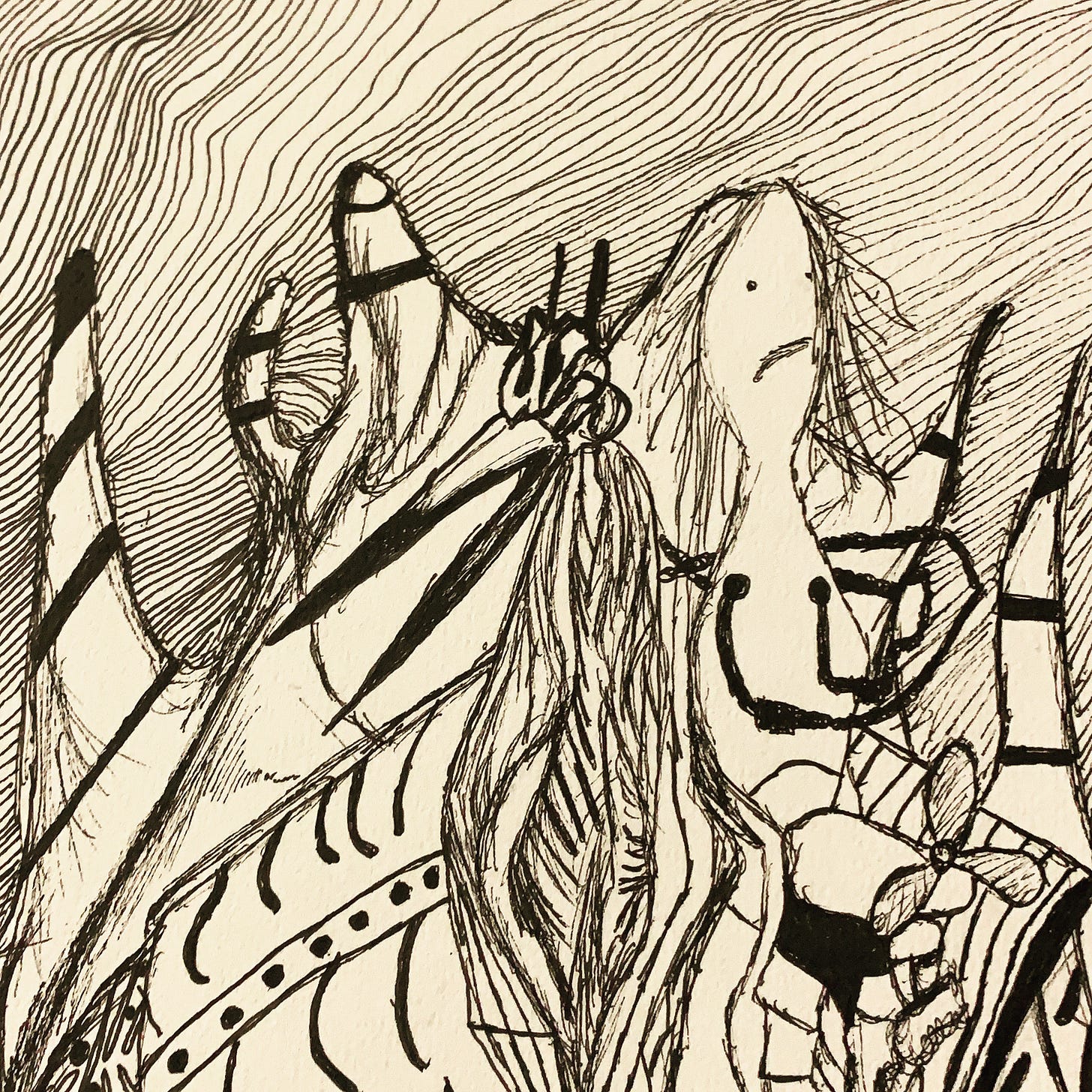Religion is the dedication to the variables in reality we have no control over, and a love letter to the mysteries of life that consume us. It's also a game of telephone, where historical events are mythologized to emphasize the enormity of their cultural impact. We identify ourselves with the group who honors these interpretations of events, and conduct ourselves accordingly to their implications. My hangup with this sociological phenommenon is the secondary consideration for truth, or more specifically, the lax methodology of establishing truth within religion. The criteria is not so rigorous, and too much faith is placed on the literature.
I've tried looking for clues indicatitng any transcendent Will being imposed on our history, but every time I go looking, no divine imprint appears to be visible. With every desperatation, humanity is left in silence again and again.
To Christians, Jesus suffices as the final statement of the God, expressing the full expression of his love for us. But the message seems to have gone over everyone's heads, and the peace and lasting leadership you'd expect from the earthly presence of God failed to take hold. Instead, Christianity has not been a net positive in the unfolding history of humanity. If its people were good, if they took control of American politics, you'd expect a beautiful vision of humanity to form by the influence of Jesus' philosophy. To Christianity's credit, its teachings have positive values, and has brought about our best moral philosophies, and have donated generously through charity work. But the scandalous corruption and inability to compete with post-enlightenment modernity speaks to its current impotence.
But the Book of Revelations informs the Christian understanding of this circumstance. The inevitable End Times speaks to the finiteness of the material world. It says not to lend too much credence to the sinners, not to put too much stock into humanity's historical projects, because the priority is to find salvation before Judgement Day.
They say a kingdom will be established when He returns. The nations on Earth settle on false foundations and will crumble under the weight of their hubris. In light of this, we must set the table in preparation for the new kingdom, acquiesce our false idols, and dissolve our meaningless loyalties. The government should be looked at as a useful idiot in the meantime, a necessary evil to which civilization can approximate a level of order.
Internalizing these Christian beliefs about the trajectory of humanity would inspire resolve and enormous awe. If it were true, the implications would animate the experience of life with passion and fear. If it were true, our relationship with the Divine would rest on the ground of our beings, and everything else would move from there. If it were more than myth, we would at least have some perspective on how all our horror would fit into a scheme.
But comfort is not the main things. The main thing is hsving an absolute Good all else can be measured by. The greatest horror is living in a world where none of this can be known as Evil by any objective framework. It has to be more than our rhetoric and the whims of our emotional reasoning. We have to know there's substance in what we find meaningful. We might never know.




